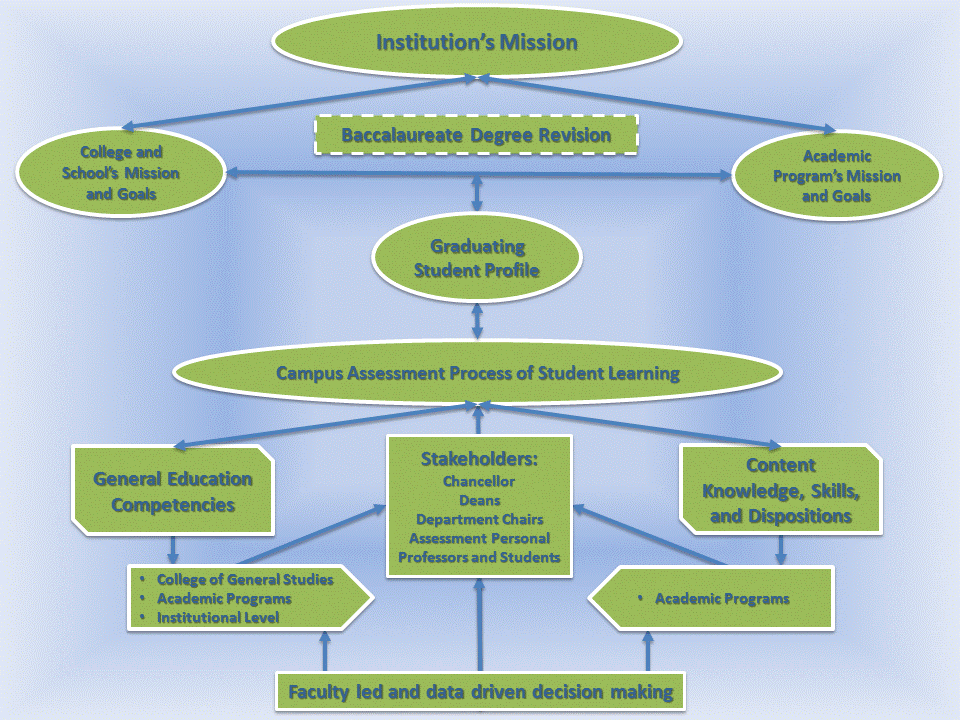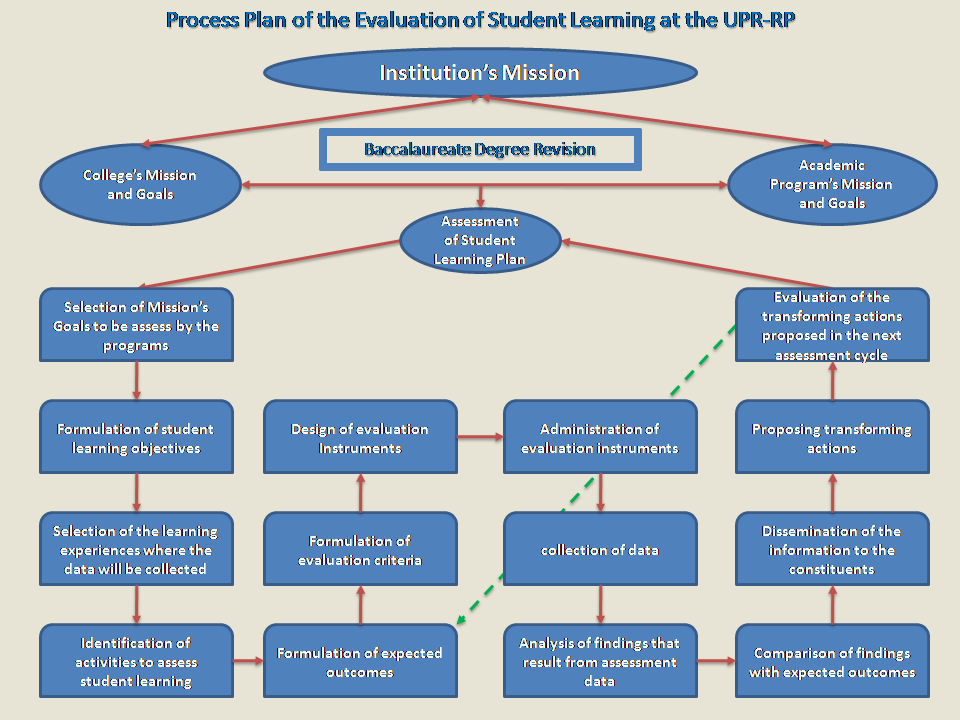In May 25th, 2001 the Academic Senate of the UPR-RP Campus established Certification 101 in order to approve a proposal of the former Dean of Academic Affairs, Dr. Carlos G. Ramos Bellido, for a teaching-learning curriculum for new full-time professors, teaching assistants and teachers with probationary appointments. Since then, the Center for Academic Excellence holds a three day activity called New Faculty Orientation (OPN, for its Spanish acronym) every August as a way to welcome new professors to our Campus.
Participants receive a series of institutional orientations that include presentations from different campus offices whose services are useful for their upcoming teaching experience. Also, as part of this activity, varies workshops are offered on relevant topics to their college work: Teaching and Learning Strategies, Assessment and Evaluation of Student Learning, Academic Technology, Academic Research, Professional Support for Faculty, and University and the Community. The OPN provides an excellent opportunity for new professors to meet and become familiar with the staff of our campus.
For this year OPN, the OEAE prepared an online presentation of our office and services. With the support of Dr. Héctor Melendez, Resident Professor in Technology of the Center for Academic Excellence, in the following video Prof. Nadia Cordero offers an orientation to our new UPR-RP professors.
For further assistance for your upcoming experience as a Professor regarding the development of educational instruments such as rubric, tests, checklists, and such for student assessment and evaluation processes, feel free to email us at email:oeaeupr@gmail.com or give us a call to (787) 764-0000, ext. 85011, 85012, 85013 or 85014 or visit us in the Annex of the Office of Academic Planning, University Square, North Tower, Third Floor and we will be glad to help you.
We wish you all the best for your upcoming experience as a new professor in the University of Puerto Rico, Rio Piedras Campus.
Mission
To provide support services to coordinators of the assessment program about the selection of suitable quantitative and qualitative instruments and the disclosure of assessment results within the campus.
martes, 21 de junio de 2011
New Faculty Orientation
lunes, 13 de junio de 2011
Acceptance for presentation (Faculty of Business Administration Accreditation Committee) - The 2011 Assessment Institute

Since 1999, an annual assessment conference titled Assessment Institute has been held at Indiana University-Purdue University Indianapolis (IUPUI). This renowned educational meeting is geared towards promoting the knowledge and practice of assessment in higher education. The activity brings together more than a thousand presenters and participants from institutions across the United States, as well as other countries. It is sponsored by some of the world’s assessment experts such as Trudy W. Banta and Thomas Angelo. The conference will take place from October 31 to November 1, 2011 in Indiana.
This year, the committee at Purdue University has accepted a proposal titled From Assessment to Curriculum Review Through Multidisciplinary Communities of Practice developed by members— Dr. Beatriz Rivera, Dr. Wanda Velázquez, Dr. Marta Charrón and Dr. Zoraida Fajardo—of the Faculty of Business Administration Assessment Committee (CAAE), University of Puerto Rico, Río Piedras Campus. Their thirty-minute presentation will show how the School of Business Administration at the University of Puerto Rico has been able to create communities of practice as a tool for closing the loop in assessment. A more detailed description of their presentation can be found in the following abstract.
The Office of Assessment of Student Learning—OEAE for its Spanish acronym— would like to acknowledge the exceptional teamwork carried out by members of the Faculty of Business Administration Accreditation Committee to comply with the requirements of Assurance of Learning Accreditation Standards of the Association to Advance Collegiate Schools of Business (AACSB) as well as the Assessment of Student Learning accreditation standard of the Middle States Commission on Higher Education. We would like to stress that this activity will shed light upon the assessment processes carried out by the faculty of the School of Business Administration of the University of Puerto Rico Rio, Piedras Campus. We are very pleased by the committee’s achievement and hope that their success will encourage other members in the Campus to follow their steps and integrate their work and ideas not only into the assessment processes of the University of Puerto Rico but also in forums and activities of international scope.
viernes, 15 de abril de 2011
Assessing Quantitative Reasoning Skills on Campus

*A test will be given to students enrolled in MECU 3031 (Pre-Calculus) of the College of Business Administration to assess students' quantitative reasoning or logical-mathematical reasoning competencies.
** The College of Natural Science will assess students quantitative reasoning or logical-mathematical reasoning competencies in the MATE 3151 (Calculus) course using selected items in departmental tests. The School of Architecture will use a similar method in their Calculus course.
miércoles, 30 de marzo de 2011
Assessment of Student Learning in the Context of Curricular Review

Date: April 8th, 2011
Meeting place: Conference Hall, School of Communication
Speakers: Prof. Julio Rodríguez, College of Education;
Prof. Nadia Cordero, OEAE
To confirm your attendance to the workshops, please send an email to the Center for Academic Excellence (centexa@gmail.com, cea.upr@upr.edu) or call the following extension numbers 2963 ó 2964, and provide the staff with the following information:
Name
Faculty, Department or office that you are part of
Telephone number or extensión number
Position (professor, librarian, student, assessment coordinator, information literacy, or other)
You can also confirm your attendance by enrolling online using the following link.
You can download a copy of the presentation in the following link.
We hope to greet you personally in this occasion.
miércoles, 16 de febrero de 2011
Information Literacy Workshops

As part of the efforts made to make progress in the process of integration and assessment of information skills to the curriculum (Circular Letter 05 of the Dean of Academic Affairs, 2008-2009), the Office of Assessment of Student Learning (OEAE) wishes to invite you to the following workshops organized jointly with the Library Systems and the Center for Academic Excellence:
1. Friday, February 18: How to integrate information literacy to the curriculum?
Speaker: Dr. Ketty Rodríguez (Library Systems)
Speakers: Dr. Snejanka Penkova, Prof. Aurea Maisonet (Library Systems)
Speakers: Dr. Carmen Campos, Dr. Wilma Colón (Faculty of General Studies)
2.Friday, February 25th: Assessment of information literacy skills
Speakers: Prof. Marisol Gutiérrez (Library Systems), Dr. Sandra Macksoud (College of Education)
Speaker: Dra. Snejanka Penkova (Library Systems)
Additional information about the workshops:
Both workshops will take place in the 'multipurpose room' of the Business Administration Library.
To confirm your attendance to these workshops, please send an email to the Center for Academic Excellence (centexa@gmail.com, cea.upr@upr.edu) or call the following extension numbers 2963 ó 2964, and provide the staff with the following information:
We hope to greet you personally in these workshops.
martes, 16 de noviembre de 2010
Principles of Good Practice
The Statement of Principles on Student Outcomes Assessment that the NASULGC dveloped express that programs for student outcomes assessment should:
AAHE's Principles of Good Practice for Assessing Student Learning are as follows:
We believe that all outcomes assessment procedures, as expressed on our Programs' assessment plans, must be consistent with these guidelines and those delineated on our Institutional Plan for Assessment of Student Learning.
lunes, 25 de octubre de 2010
Workshop - Effective Test Taking Strategies for the GRE

You are about to finish your current academic endeavor, but you already know that you want to pursue a degree in higher education in the United States. Maybe you are an Natural Sciences undergraduate student who wants to achieve a graduate degree in Chemistry, or perhaps you are a current graduate student majoring in Educational Research and Evaluation who wants to pursue a Ph.D. in Measurement, Research, and Evaluation.
Among the things you need to do in order to complete the process of admission is to take ETS's Graduate Record Examination General Test. The GRE General Test measures verbal reasoning, quantitative reasoning, critical thinking, and analytical writing skills that have been acquired over a long period of time and that are not related to any specific field of study. Most institutions that offer graduate degrees require the GRE General Test as part of their admission requirements (to be sure, check before enrolling).
We at the Office of Evaluation of Student Learning are committed to strengthen our students' abilities and skills, as it is expressed in our Institution's mission, such as critical thinking, effective communication, social responsibility, research and creation, information literacy, logical-mathematical reasoning, among others. Thus, the Effective Test Taking Strategies for the GRE Workshop is our way of proving an opportunity to prepare our students better for their next path on their academic journey to higher education.
To access a copy of the presentation, please click here.
To download a copy of the materials presented on our workshop, please click one of the following links.
Rapidshare
Megaupload
Uploading
FileFactory
2Shared
If you have any comments about our workshop, please let us know through our blog or email us (oeaeupr@gmail.com).
We hope that this presentation, along with the materials we have compiled for you, can help you to achieve a high score on your GRE General Test.


